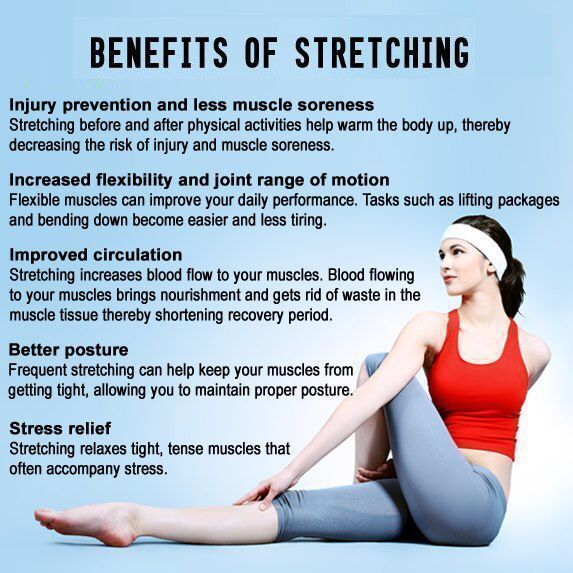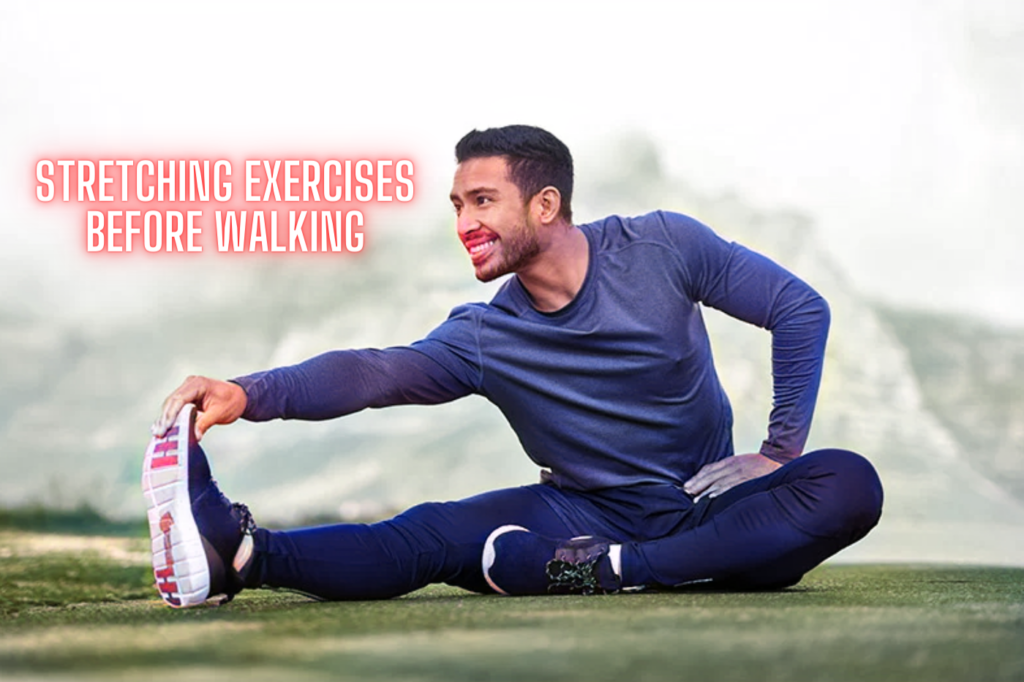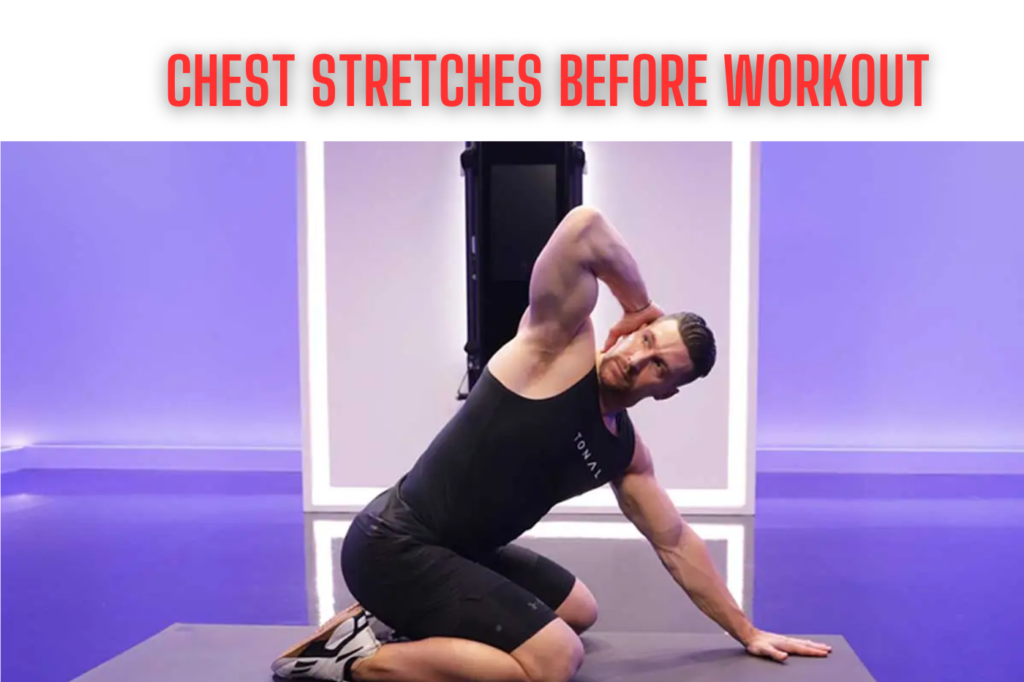Stretching is an essential component of any fitness routine, offering numerous benefits that can help improve overall health and well-being. Incorporating stretching into your daily routine can significantly enhance flexibility, boost circulation, and promote better posture.
Reduces muscle stiffness and soreness. Stretching is a simple yet powerful practice often overlooked in fitness routines. Regular stretching enhances physical performance by increasing flexibility and range of motion. It also helps alleviate muscle stiffness and soreness, making daily activities easier and more comfortable.
Additionally, stretching aids in injury prevention by preparing muscles for physical activity. It improves circulation, which promotes better oxygen flow to muscles. Mental benefits include stress relief and relaxation, contributing to overall well-being. Integrating stretching into your daily routine can significantly improve both physical and mental health. This comprehensive approach ensures that your body remains agile, strong, and resilient, allowing you to perform at your best in all aspects of life.

Introduction To Stretching Benefits
Stretching every day can make your body feel good. It helps your muscles stay flexible and strong. Daily stretching can also improve your posture. This means you stand up straight and tall. Stretching can reduce stress. It makes you feel relaxed and calm.
Regular stretching can improve your range of motion. This means you can move your joints more freely. It can also help reduce pain. Your muscles will not feel tight. Stretching can make your blood flow better. This helps your body get more oxygen. It can even help you sleep better. You will feel more rested.
Improved Flexibility
Stretching makes your muscles longer. This helps your joints move better. When muscles are not tight, joints feel free. You can move without pain. Regular stretching keeps your joints healthy. It helps you do daily tasks easily. You will find it easier to bend and twist. Muscles become more flexible, and joints stay strong.
Stretching daily helps you stay active. As you age, your muscles become stiff. Regular stretches keep them loose. This helps you walk and run better. You will feel more balanced. Stretching also reduces the risk of injury. It helps your body stay young and fit. Enjoy better mobility throughout your life.
Enhanced Muscle Performance
Stretching helps muscles become more flexible. Flexible muscles are stronger and can handle more pressure. This means you can lift heavier weights and perform better in sports. Regular stretching also improves blood flow to muscles. This helps them recover faster and grow stronger. Flexibility can reduce the risk of injury too.
Stretching regularly can prevent performance plateaus. Muscles can become tight and stiff if not stretched. This can limit movement and reduce performance. Stretching keeps muscles loose and flexible. This allows for better movement and improved performance. Stretching also helps in breaking through plateaus by keeping muscles fresh and ready for action.
Injury Prevention
Stretching helps keep muscles flexible and strong. It allows for better range of motion in the joints. Less tension in muscles means fewer strains and sprains. Regular stretching can improve balance and coordination. These can help prevent falls and other injuries.
Athletes often stretch to prepare their bodies for action. It can help reduce muscle stiffness and increase blood flow. This leads to better performance and less chance of injury. Stretching after sports helps muscles recover faster. It reduces muscle soreness and fatigue.
Increased Blood Flow
Stretching helps to improve blood flow. Better blood flow means more oxygen to muscles. More oxygen helps muscles work better. This can reduce muscle soreness. It can also make you feel more energetic.
Stretching aids in the healing process. It can speed up recovery from injuries. Better blood flow helps deliver nutrients. Nutrients are essential for tissue repair. Stretching can also reduce muscle stiffness. This can help you get back to activities faster.

Stress Relief
Discover the top 10 benefits of stretching for stress relief. Improve flexibility, reduce muscle tension, and enhance relaxation with simple stretches. Experience better mental clarity and overall well-being through regular stretching routines.
Mental Benefits Of Stretching
Stretching helps to calm the mind. It can lower stress levels quickly. Deep breaths during stretching make you feel relaxed. The mind focuses better after stretching. It clears your thoughts and improves mental health.
Stretching As A Form Of Meditation
Stretching can be like meditation. It allows you to be present in the moment. This helps you forget about worries. The slow movements and deep breaths are soothing. Stretching can be a peaceful activity.
Better Posture
Improving posture can be achieved through regular stretching, which offers numerous benefits. Enhanced flexibility, reduced muscle stiffness, and increased blood circulation contribute to better overall alignment.
Correcting Imbalances
Stretching helps correct muscle imbalances. It targets tight muscles and stretches them out. This can reduce pain and discomfort. Your body feels more balanced. You will notice a difference in how you stand and sit. You may also feel more confident.
Long-term Postural Improvements
Consistent stretching leads to long-term postural improvements. It trains your muscles to maintain proper alignment. This reduces the risk of injuries. It also makes daily activities easier. You will move more freely and with less effort. Improved posture boosts your energy levels.
Pain Alleviation
Stretching helps relieve back pain. It loosens tight muscles. This can ease discomfort. Stretching also improves flexibility. This makes movement easier. Consistent stretching reduces the risk of future pain.
Chronic pain can be managed with regular stretching. Stretching increases blood flow to muscles. This promotes healing and reduces pain. It also helps in reducing stiffness. Regular stretching can improve overall well-being.
Enhanced Athletic Performance
Stretching helps runners to prevent injuries. Muscles become more flexible with regular stretching. Flexible muscles can handle stress better. This leads to better performance. It also reduces muscle stiffness after a run. Stiff muscles can limit speed and endurance. Proper stretching can make you run faster. It can also help you run longer. Runners who stretch regularly feel less fatigue.
Flexibility training is important for all sports. Athletes need flexible muscles to perform well. Stretching improves range of motion. This is vital for sports like gymnastics and swimming. Football players also benefit from flexibility. It helps them avoid injuries during tackles. Basketball players need flexible muscles for quick movements. Stretching makes them more agile. It also helps in sports like tennis and soccer. Flexible muscles can boost performance in any sport.
Aids In Digestion
Stretching can help your digestive system. It can reduce constipation and bloating. Some stretches can also improve blood flow to your gut. Good blood flow means your gut can work better. Stretching can also help your nervous system. A healthy nervous system means better digestion.
Try the seated twist stretch. Sit on the floor with legs straight. Bend one knee and place the foot outside the opposite knee. Twist your body towards the bent knee. Hold for 30 seconds and repeat on the other side. Another good stretch is the cat-cow pose. Get on all fours. Arch your back like a cat, then dip it like a cow. Repeat for a few minutes.
Promotes Better Sleep
Stretching can enhance sleep quality by relaxing tense muscles and calming the mind. A consistent routine helps signal the body it’s time to rest.
Stretching For Relaxation Before Bed
Stretching helps your body relax before bed. It can ease muscle tension and calm your mind. This creates a peaceful state, making it easier to fall asleep. Gentle stretches signal your body that it’s time to rest. They can also reduce stress and promote relaxation. Stretching before bed can become a soothing nightly routine.
Improving Sleep Quality Through Flexibility
Regular stretching improves flexibility and reduces stiffness. This can lead to better sleep quality. Flexible muscles can prevent aches and pains during the night. Stretching also helps improve blood flow, which is important for good sleep. By keeping your body flexible, you may find you sleep more soundly. It can also help you wake up feeling refreshed and energized.
Integrating Stretching Into Your Routine
Integrating stretching into your daily routine enhances flexibility, reduces injury risk, and boosts overall well-being. Enjoy improved posture, stress relief, and increased energy levels through regular stretching practices.
Simple Stretches To Get Started
Start with basic stretches like touching your toes. Stand up straight, then bend forward. Reach towards your toes without bending your knees. Hold the stretch for 15 seconds, then slowly stand up. Another easy stretch is the shoulder stretch. Raise one arm across your body. Use your other arm to pull it closer to your chest. Hold this position for 15 seconds, then switch arms. These stretches are simple but very effective.
Making Stretching A Habit
Begin by setting aside 5 minutes each day. Gradually increase the time as you get more comfortable. Find a time that works best, like after waking up or before bed. Use a timer to remind you when to stretch. Try to stretch at the same time every day. Consistency will help make stretching a daily habit. Over time, your flexibility will improve.
Frequently Asked Questions
How Beneficial Is Daily Stretching?
Daily stretching improves flexibility, reduces muscle tension, and enhances blood circulation. It also helps prevent injuries and boosts overall well-being.
Is Stretching Before Bed Good?
Yes, stretching before bed is beneficial. It helps relax muscles, reduce stress, and improve sleep quality. Stretching promotes flexibility and circulation.
Does Stretching Strengthen Your Body?
Stretching does not directly strengthen muscles. It improves flexibility and range of motion, aiding overall physical performance.
How Often Should You Stretch?
Stretch daily for optimal flexibility and muscle health. Aim for at least 5-10 minutes of stretching each day.
Conclusion
Regular stretching offers numerous benefits for your body and mind. From improved flexibility to reduced stress, the advantages are clear. Incorporate stretching into your daily routine for a healthier, more balanced lifestyle. Make stretching a habit and experience these positive changes firsthand.
Start today and feel the difference.











